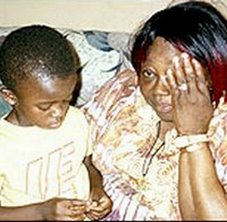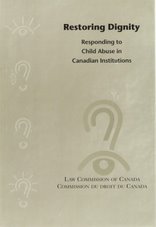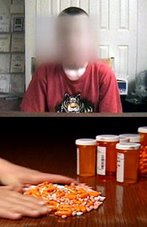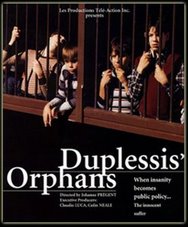"If you look at the adverse-drug-reaction literature, kids have been the sentinel canary for a lot of bad things in drug theory for quite a long time." - Micheal Rieder, Pediatric clinical pharmacologist.

Drug policies make kids 'sentinel canaries' - report By The Canadian Press
Tuesday, November 11, 2003
Tuesday, November 11, 2003
TORONTO - For too long children have been "sentinel canaries" when it comes to prescription drugs, with regulating authorities requiring little or no verification that drugs are safe for children before they are used, a group of experts is arguing.
In a commentary to be published today in the Canadian Medical Association Journal, they say it's time for the evidence-based medicine rules that are used to ensure prescription drugs are safe for adults to be applied to the pediatric population.
"We live in a world of rules. And I think parents would not unnaturally assume that the rules that apply to drug approvals for them are the same as ... for their kids. And they would be wrong," Michael Rieder, a pediatric clinical pharmacologist, said in an interview yesterday.
It is often argued that it is unethical to test pharmaceuticals in children, both because they cannot give informed consent and because there may be more risk of harm from drugs during the early stages of life.
Rieder and three colleagues from the Children's Hospital of Western Ontario turn that argument around, however, suggesting it may be unethical to prescribe drugs to children if there is no evidence the drugs are safe in this vulnerable population.
"If you look at the adverse-drug-reaction literature, kids have been the sentinel canary for a lot of bad things in drug theory for quite some time. And I would argue that's not the best segment of society who should be serving that function," he said.
Traditionally new drugs are tested first in animals, then in adult humans.
Once they are licensed for use, however, doctors can and do prescribe them to children -- but without the benefit of clinical data to show if they will be effective or what the appropriate dosage should be.
That is largely guesswork. And it isn't always right.
Rieder noted a drug called theophylline, once commonly used in the treatment of asthma, was prescribed for some time to children before it was realized that it wasn't working.
It turned out that kilogram for kilogram, children required higher doses of the drug than adults.
With other drugs, however, adult doses are unsafe for children and must be cut back.
"One of the problematic issues in efficacy is that for many drugs, we have an idea what the best dose could be. But we could be wrong. Like, totally wrong. And there's very little way of finding out," Rieder said.
The associate chief of research at the research institute of Toronto's Hospital for Sick Children agreed more pediatric drug trials need to be done.
But Denis Daneman suggested the field is evolving rapidly, with a growing numbers of trials being undertaken.
"I'm very comforted by the fact that people have increasingly talked about it," Daneman said.
"If you actually look at the number of clinical trials going on in pediatrics -- clinical trials involving medication -- it's quite substantial."
Rieder agreed, but noted the work is mainly done on new drugs companies are trying to bring to market, not existing drugs that are being prescribed for children without the support of clinical data.
In part that's because of a U.S. provision that grants drug manufacturers an extra six months of patent protection for a drug if it is tested in children.
"Six months sounds like nothing. But to a moderately expensive U.S. drug or European drug, it's hundreds of millions of dollars in patent protection," Daneman said.
The provision is helping to change the field, the commentary said.
But as yet no similar provision has been adopted here.
And the authors argue Canada shouldn't be content to simply ride on American coattails.
"Is it fair for us to let the U.S. haul the freight on this? As a policy, I think it shows less than noteworthy leadership," Rieder said.
"We're not hauling our weight as a sovereign state."





























No comments:
Post a Comment